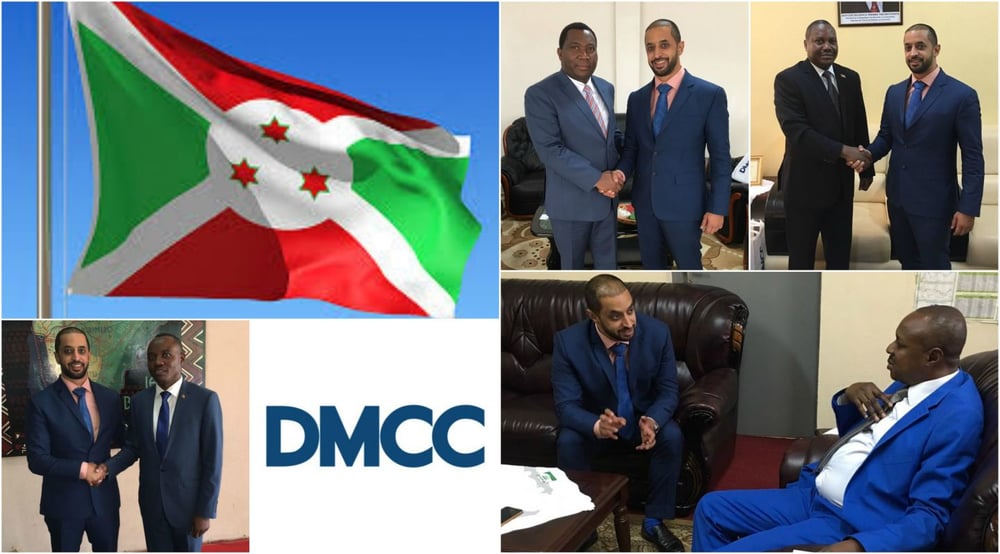Bin Sulayem meets with government officials to discuss future potential of commodity sector
DMCC Executive Chairman, Ahmed Bin Sulayem’s ongoing visits across Africa continued in Burundi as he met with government leaders to underscore DMCC’s support for the country’s growing commodities sector.
Mr. Bin Sulayem’s focused dialogue on the commodity sector took place with Côme Manirakiza, Minster of Energy and Mines, Dr. Phil Domitien Ndihokubwayo, Minister of Finance, Jacques Bigirimana, General Director of Burundi Tea Authority, and Dr. Rurema Déo-Guide, Minister of Agriculture.
Burundi’s primary exports include coffee, tea and gold. According to the World Bank, Gold remains the commodity where Burundi can make the most gains if they can implement a practical strategy grounded in market and trade realities. The value of gold extracted and exported from Burundi rose over 800% between 2010 and 2013. In 2014, UAE remained Burundi’s only trade partner for the commodity.
“We strongly believe in Burundi’s economic potential and are committed to supporting its economic growth projections and strong trade potential,” said Bin Sulayem. “DMCC’s focus on Africa is a long-term commitment to countries like Burundi who we need to engage more actively because of our strong conviction that the world needs to do better for the continent. We endeavour to continue to grow our trade ties and will particularly be focusing on helping them rejuvenate their commodity and agricultural sectors given our expertise in this space.”
Burundi, which has been facing civil unrest and political instability over the last year, is on a road to swift economic recovery. The economy grew at a rate of 5% in 2013-14, and is expected to post a growth rate of 1.5% in 2017. Agriculture accounts for just over 40% of Burundi’s GDP, with coffee and tea being primary exports accounting for nearly 90% of foreign exchange earnings. Tea is Burundi's second-largest earner behind coffee and supports 300,000 farmers in a nation of 10 million people.
Burundi joined the East African Community (EAC) in 2009, and regional infrastructure improvements driven by the EAC and funded by the World Bank will improve Burundi’s transport connections and lower transportation costs. Bin Sulayem said: “One of the biggest challenges impacting Africa’s and Burundi’s gold industry has been the rise in the illegal sourcing and transport of this commodity through hand-carriage on airlines. We have been urging the global air transport industry, including IATA and ICAO, to enact a ban and adopt a ‘cargo only’ policy, which would require proof of responsible sourcing. This is an essential step in ensuring the security of Burundi’s gold industry as an unacceptable level of ‘unofficial’ trading is costing the government significant revenue and is severely impacting the lives of thousands of local miners.”
“We look forward to the opportunity to partner with Burundi to support their economic recovery. In addition to gold, Dubai’s strategic importance in both tea and coffee value chains will help ensure that exports from the country in this space reach a global market. This is where we believe DMCC can deliver the strongest value and our efforts over the past year to engage nations across Africa underscores how we are committed to the continent and linking it to the rest of the world.”
